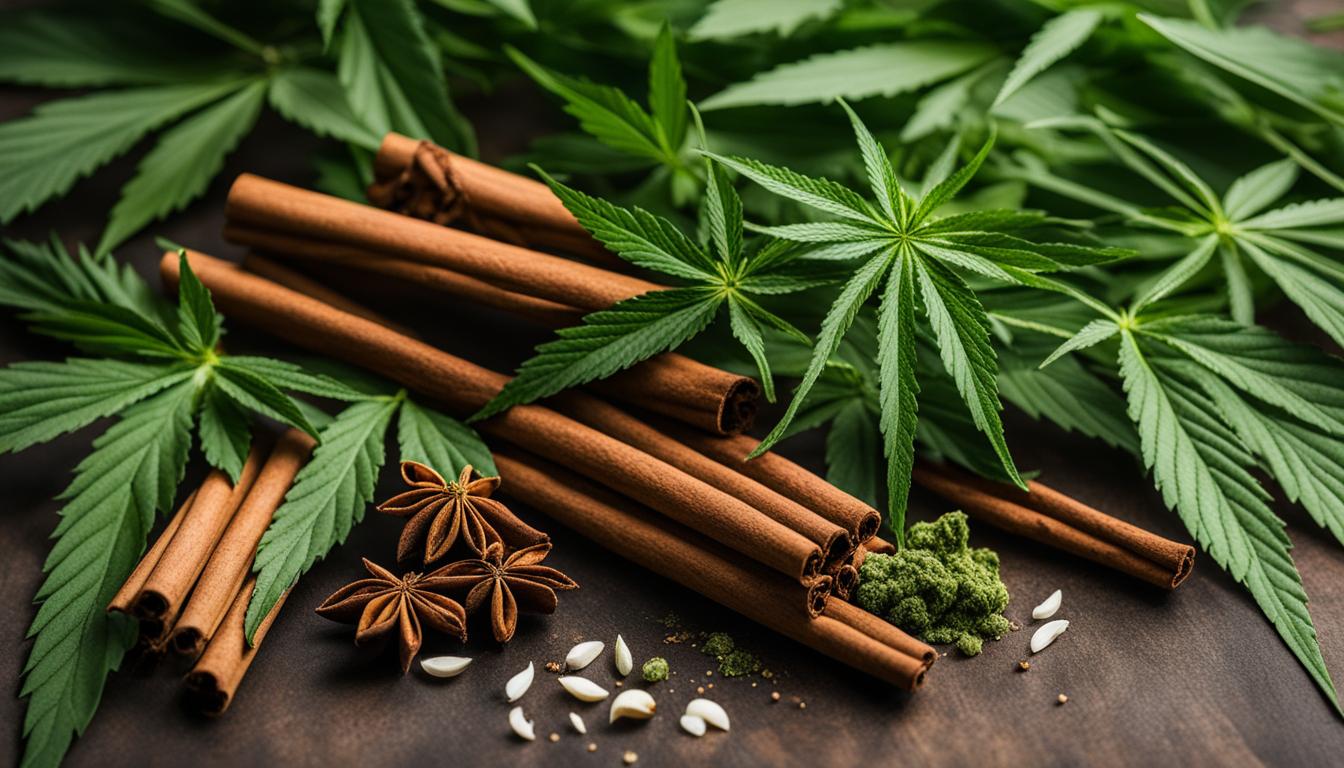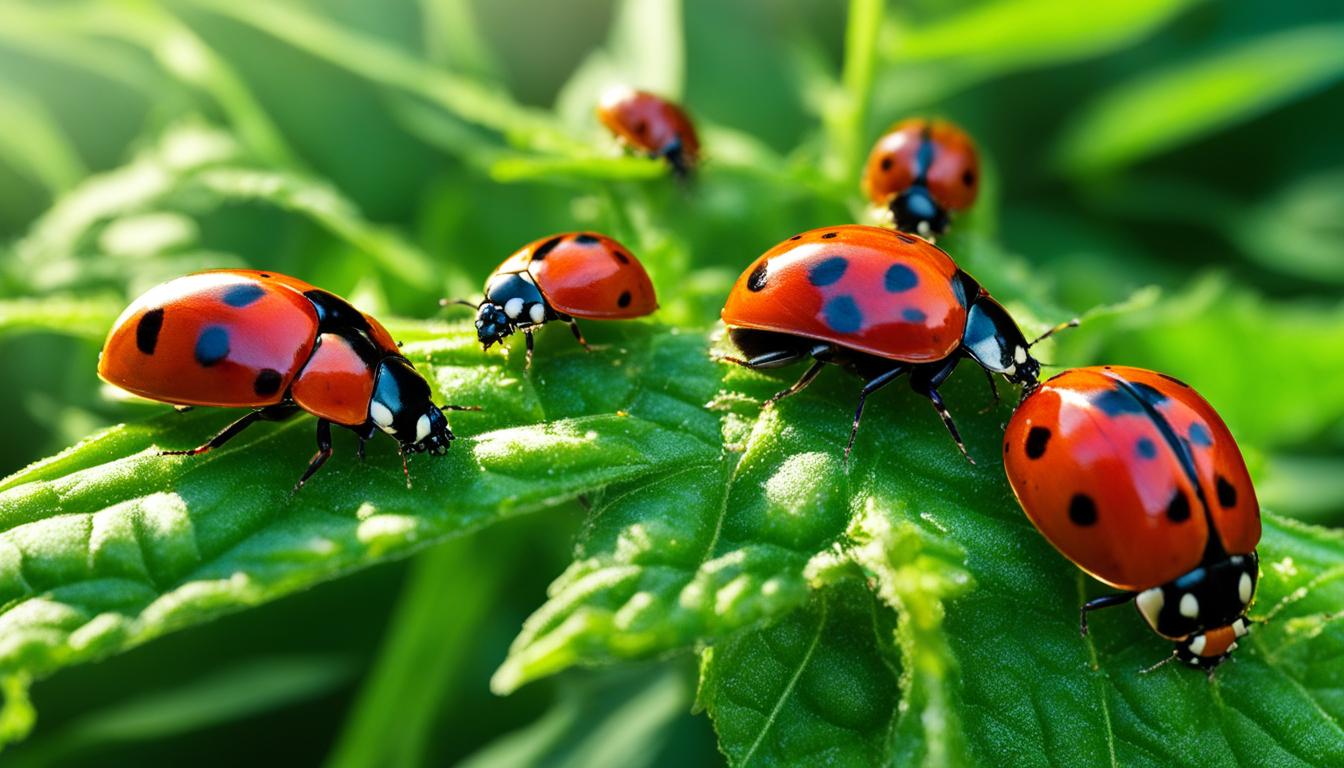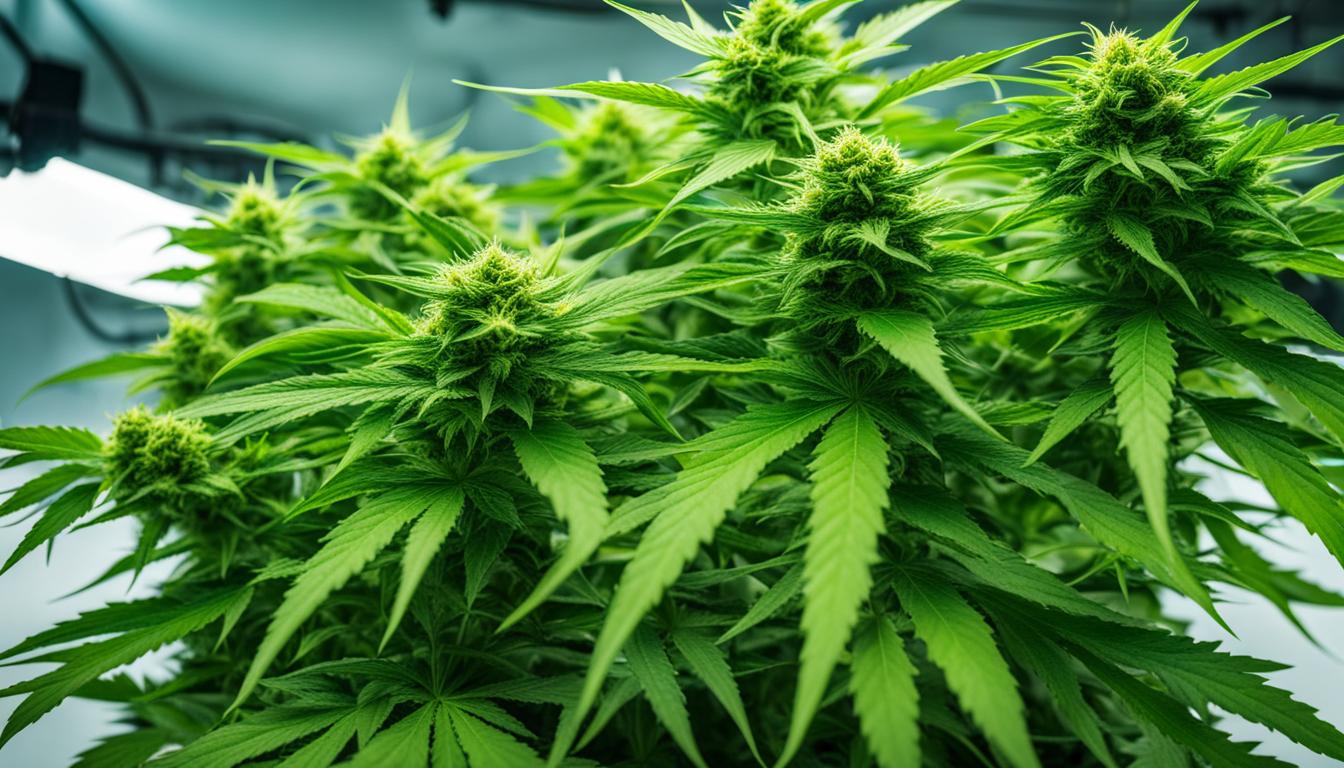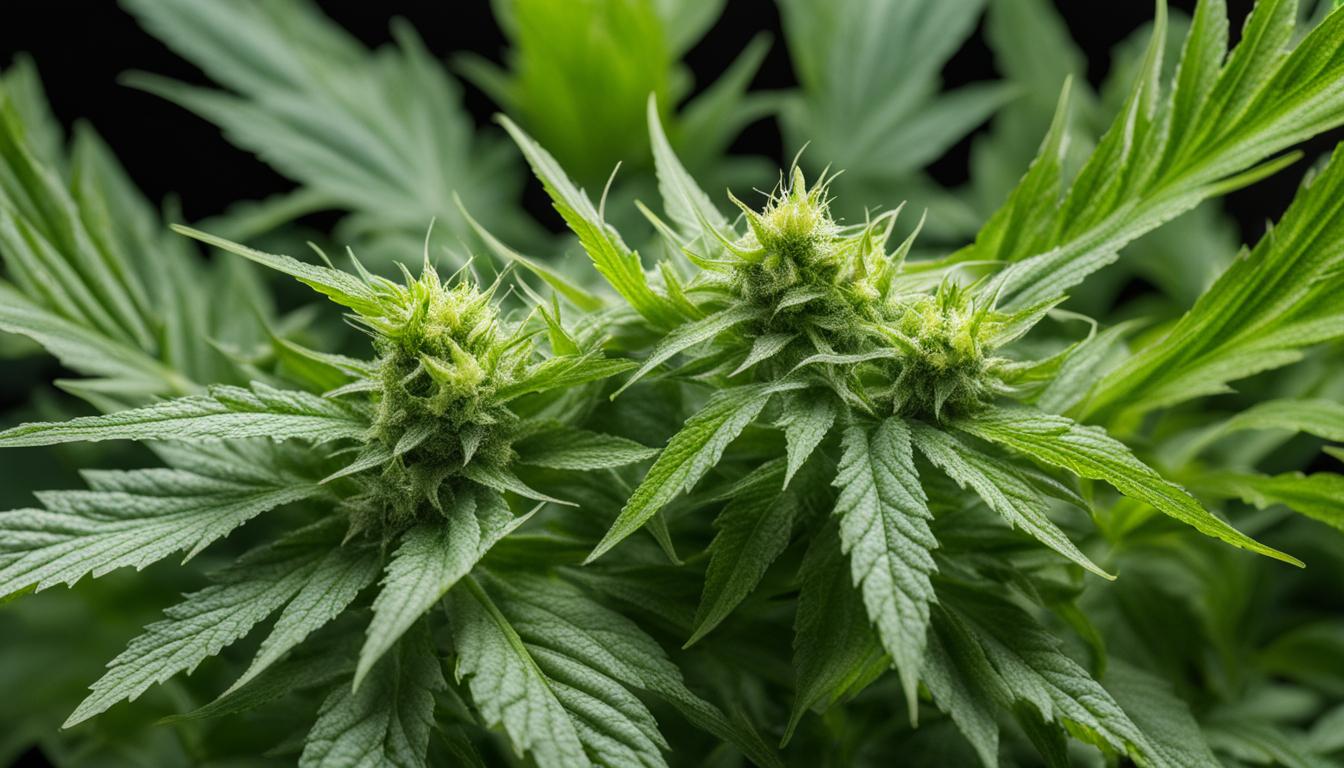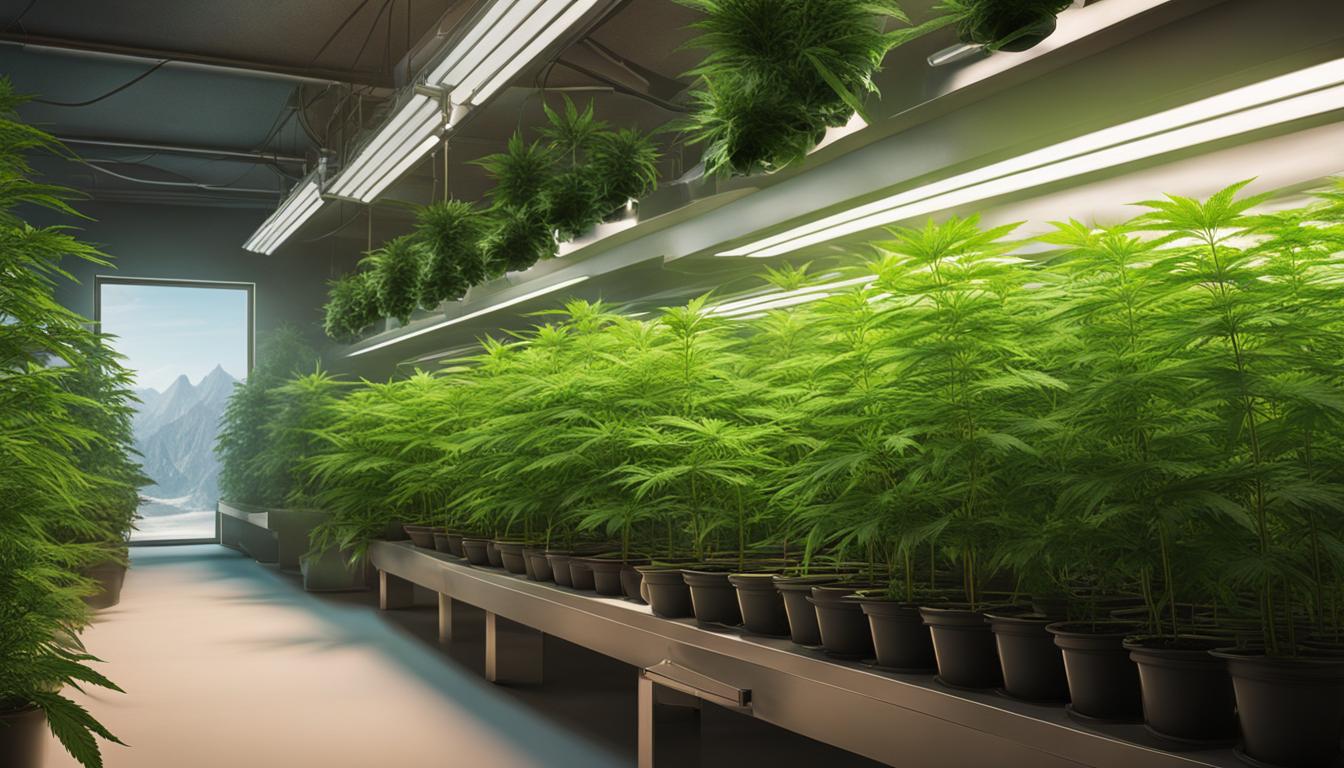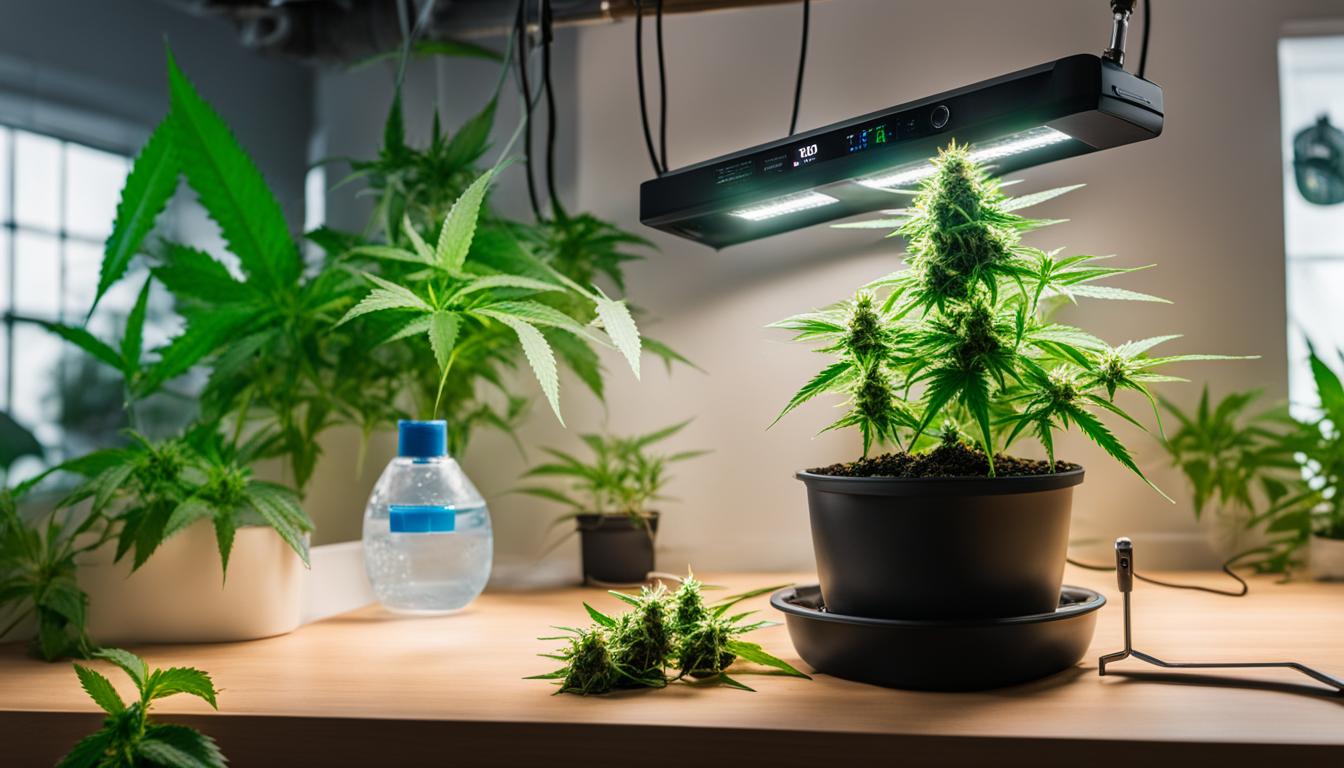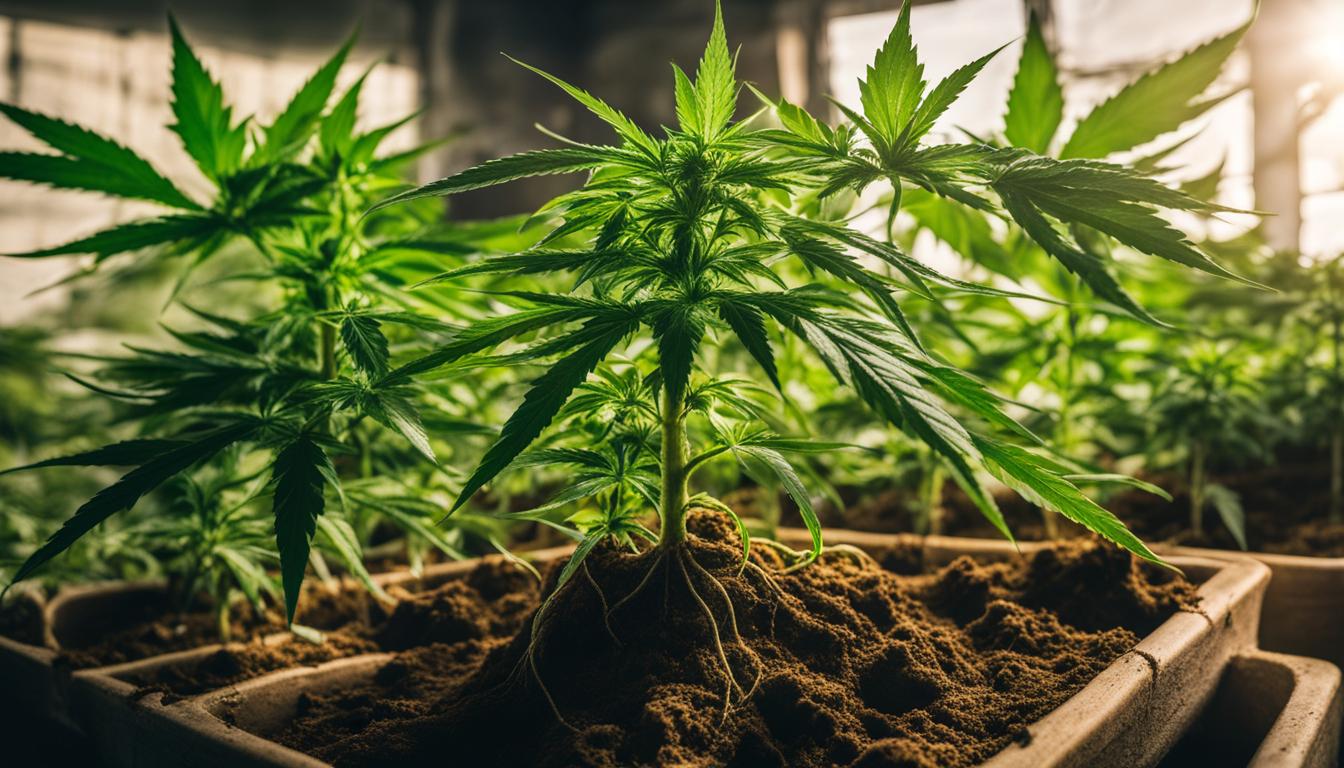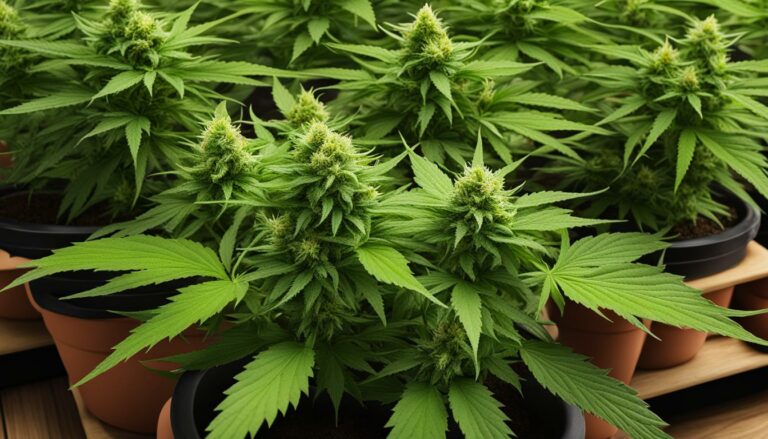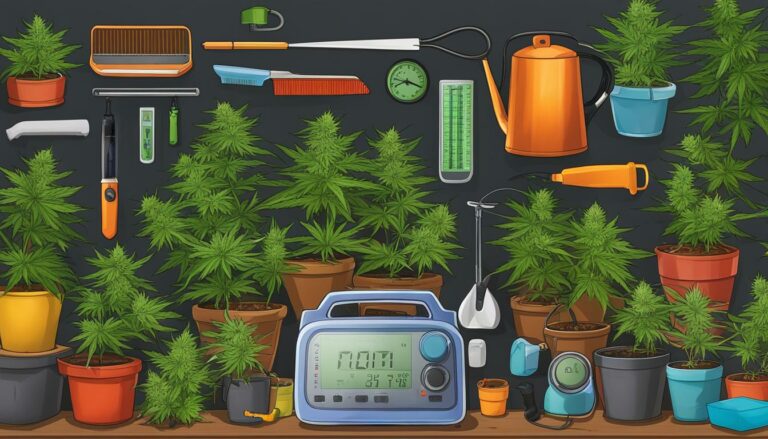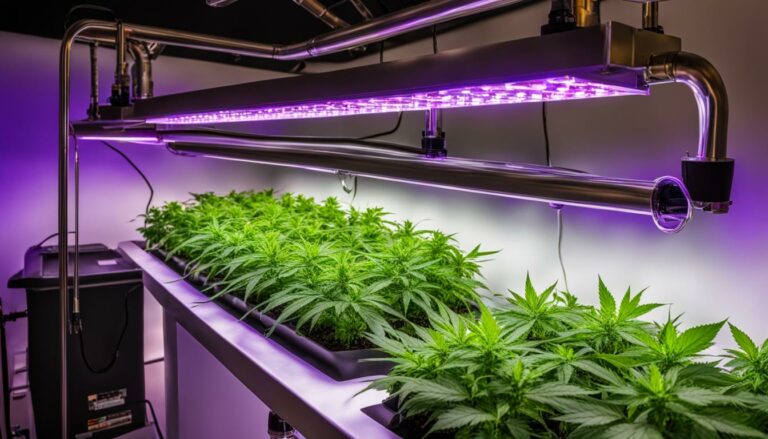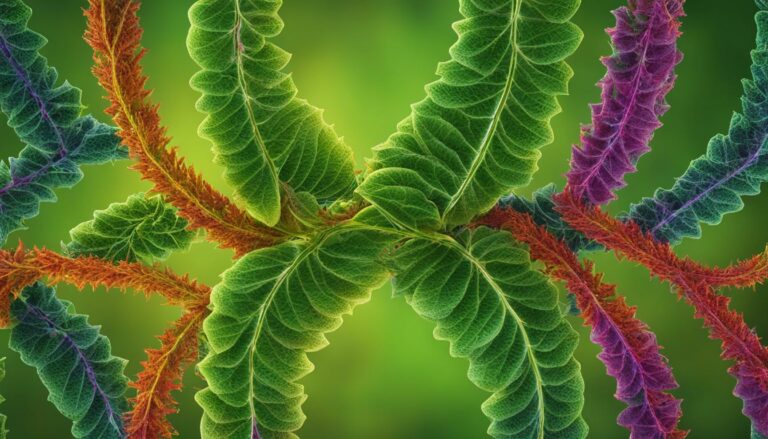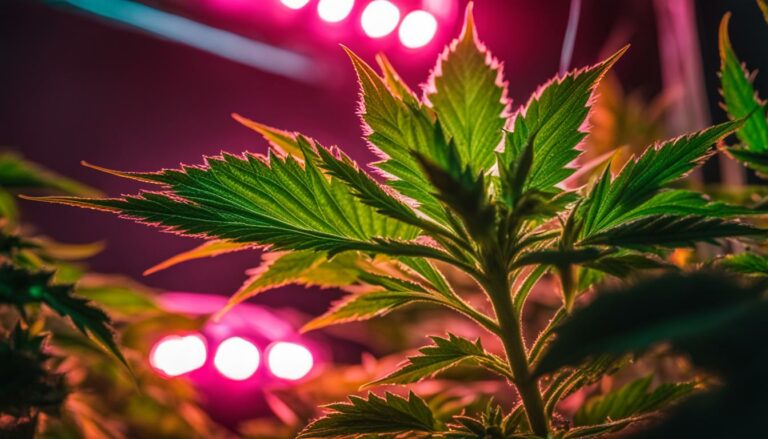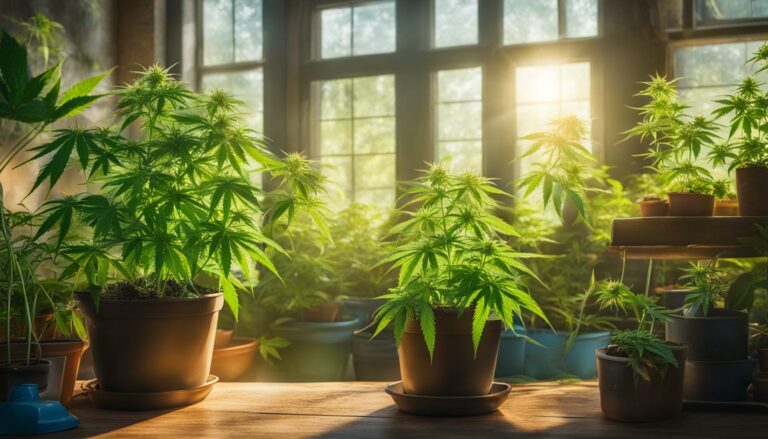What Are the Safe and Natural Fungicides for Cannabis Plants?
In the world of cannabis cultivation, the health and well-being of your plants are of utmost importance. One of the biggest threats to their growth and vitality is fungal diseases. These diseases can wreak havoc on your plants, causing mold, root rot, and a range of other damaging effects. That’s why it’s essential to have a solid understanding of safe and natural fungicides that can effectively combat these issues.
When it comes to protecting your cannabis plants, opting for organic fungicides is the way to go. These natural alternatives provide an eco-friendly and non-toxic approach to disease treatment. By choosing these products, you can ensure the health and longevity of your plants without harming the environment or compromising the quality of your harvest.
In this article, we will explore different options for safe and natural fungicides for cannabis plants. We’ll delve into the benefits of organic fungicides, discuss eco-friendly alternatives, and provide you with valuable insights on how to effectively prevent and treat fungal diseases. So let’s dive in and discover the best ways to protect your cannabis plants using nature’s own remedies!
Controlling Environmental Variables for Fungal Disease Prevention
Fungal diseases pose a significant threat to cannabis plants, but there are effective measures you can take to prevent and control them. One crucial aspect is controlling environmental variables, as certain conditions can create a favorable environment for fungal spores to thrive. By understanding and adjusting these variables, you can minimize the risk and spread of fungal diseases, ensuring the health and vitality of your cannabis plants.
Temperature
Temperature plays a vital role in fungal disease prevention. Most fungal pathogens thrive in temperatures between 20°C and 30°C (68°F to 86°F). To discourage fungal growth, it is important to keep your grow room or greenhouse below this temperature range. Regularly monitoring and maintaining the temperature within the optimal range will create an inhospitable environment for fungal diseases.
Watering and Humidity
Proper watering practices are essential for fungal disease prevention. Overwatering can create excess moisture, providing a breeding ground for fungal pathogens. To avoid this, ensure that your plants receive adequate drainage and only water when the top inch of the soil feels dry. Additionally, maintaining proper humidity levels can inhibit fungal growth. Aim for a relative humidity of around 50% to 60% during the vegetative stage and lower humidity of 40% to 50% during the flowering stage.
Soil pH
The pH level of your soil can influence the susceptibility of your cannabis plants to fungal diseases. Most fungal pathogens thrive in slightly acidic conditions, with a pH range of 5.5 to 6.5. Regularly test the pH of your soil and adjust it using organic amendments like dolomite lime or sulfur to maintain a slightly acidic pH. By keeping the soil pH within the optimal range, you can create an environment that is less favorable for fungal growth.
| Environmental Variable | Optimal Range |
|---|---|
| Temperature | Below 20°C – 30°C (68°F – 86°F) |
| Watering | Allow top inch of soil to dry out between waterings |
| Humidity | Vegetative stage: 50% – 60%, Flowering stage: 40% – 50% |
| Soil pH | 5.5 – 6.5 |
By controlling environmental variables such as temperature, watering practices, humidity levels, and soil pH, you can create an inhospitable environment for fungal diseases to thrive. Implementing these best practices will help safeguard the health and productivity of your cannabis plants, allowing you to cultivate them with confidence.
Conventional Fungicides for Fungal Disease Treatment
Fungal diseases can wreak havoc on cannabis plants, causing mold, root rot, and other devastating conditions. When faced with an outbreak, growers often turn to conventional fungicides for an effective treatment. These chemical-based solutions have proven to be successful in killing fungi and preventing further spread. However, it is important to note that while conventional fungicides may be effective, they can also be harmful to both plants and the environment.
Chemical fungicides contain active ingredients that target and eliminate fungal pathogens. They work by disrupting the cellular processes of the fungi, leading to their death. The effectiveness of these treatments is unquestionable; they can quickly eradicate fungal infections and protect the crop from further damage. However, their potency comes at a cost.
Conventional fungicides, while effective in treating fungal diseases, can have negative impacts on the environment and the health of cannabis plants. These chemicals often contain toxic ingredients that can accumulate in the soil, water sources, and plant tissues. Prolonged and excessive use of chemical fungicides can lead to soil degradation, water pollution, and the development of resistant fungal strains. It is important for growers to consider the long-term consequences and explore safer alternatives.
While conventional fungicides may offer quick and effective treatment, their potential harm to the environment and plants cannot be ignored. Therefore, it is essential for growers to explore safer alternatives, such as organic fungicides, which can provide effective disease management without compromising the health of cannabis plants or the environment.
| Fungicide | Effectiveness | Environmental Impact |
|---|---|---|
| Conventional fungicides | High | Harmful to plants and environment |
| Organic fungicides | Effective | Minimal impact |
Organic Fungicidal Options for Safe and Natural Treatment
When it comes to treating fungal diseases in cannabis plants, organic fungicides offer a safe and effective alternative to conventional chemical treatments. These natural alternatives not only protect the health of your plants but also ensure the safety of the environment. Let’s explore some of the organic fungicidal options that can help you combat fungal diseases.
Potassium Bicarbonate
One of the most commonly used organic fungicides is potassium bicarbonate. This natural compound, often used as a baking ingredient, can effectively reduce the spread of powdery mildew on cannabis plants. It works by altering the pH of the plant’s surface, creating an environment that is inhospitable to fungal growth. By applying potassium bicarbonate regularly, you can prevent the development and spread of powdery mildew.
Hydrogen Peroxide
Hydrogen peroxide is another organic fungicidal option that inhibits the growth of gray mold and algae on cannabis plants. When applied to affected areas, it releases oxygen, effectively killing off the fungi and preventing further spread. It is important to dilute hydrogen peroxide to an appropriate concentration before applying it to your plants, as high concentrations can damage the plant tissue.
Copper Sulfate
Copper sulfate, when combined with lime, becomes an effective natural fungicide for fungal disease control. This combination helps control fungal diseases without causing harm to your cannabis plants. Copper sulfate works by disrupting the spore germination process and inhibiting the growth of pathogens. It is important to follow the recommended application rates to prevent copper toxicity in your plants.
Bacillus Subtilis
Bacillus subtilis is a beneficial bacteria strain that can be used as a natural treatment for fungal diseases in cannabis plants. This probiotic bacteria colonizes the plant’s surface, creating a protective barrier against fungi. It effectively fights against mildew and gray mold without causing any harm to the plants. Regular application of Bacillus subtilis can help prevent fungal infections and promote healthy growth in your cannabis plants.
By utilizing organic fungicidal options like potassium bicarbonate, hydrogen peroxide, copper sulfate, and Bacillus subtilis, you can effectively treat fungal diseases in your cannabis plants while ensuring their safety and well-being. These natural alternatives offer a sustainable and eco-friendly approach to fungal disease management, allowing you to cultivate healthy and thriving cannabis plants.
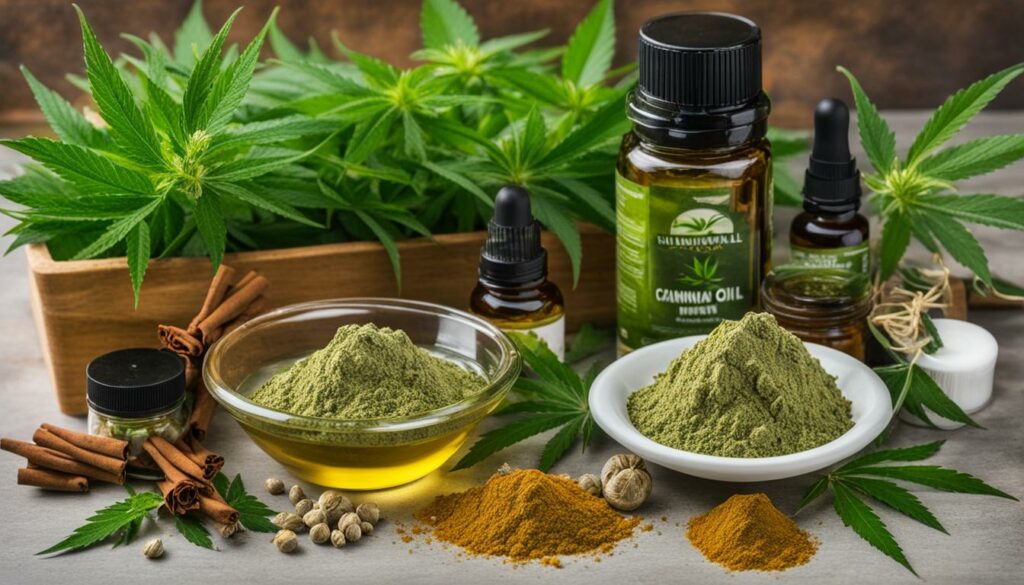
Air Sanitization for Fungal Disease Prevention
When it comes to preventing fungal diseases in your cannabis plants, one of the key factors to consider is air sanitization. Mold spores, which are a common carrier of fungal diseases, can easily spread through the air and infect your plants. Investing in an air purification system like AiroClean420 can effectively neutralize mold spores in your growing environment, making it the industry’s best option for air sanitization.
AiroClean420 uses advanced technology to capture and eliminate mold spores, creating a clean and healthy environment for your plants. The system works by drawing air through tubules coated with titanium dioxide, which reacts with UV light to neutralize mold spores. This innovative approach ensures that your plants are protected from the harmful effects of fungal diseases.
By implementing air sanitization with AiroClean420, you can significantly reduce the risk of fungal infections in your cannabis plants. This not only helps safeguard the health and vitality of your plants but also ensures that you can cultivate high-quality cannabis without the need for harmful chemical fungicides.
Conclusion
When it comes to the successful cultivation of cannabis plants, understanding the use of safe and natural fungicides is paramount. By employing effective treatment methods and focusing on organic options, growers can prevent and combat fungal diseases while prioritizing the health of their plants and the environment.
Controlling environmental variables plays a vital role in fungal disease prevention. By carefully managing temperature, watering, humidity levels, and soil pH according to industry best practices, the spread of fungal spores can be minimized, creating a healthier growing environment for cannabis plants.
While conventional fungicides may offer immediate results, it is important to be mindful of their potential harm to both plants and the environment. Instead, organic fungicides provide a safe alternative. Options such as potassium bicarbonate, hydrogen peroxide, copper sulfate, and Bacillus subtilis effectively combat fungal diseases without causing damage.
Investing in air sanitization through advanced systems like AiroClean420 can be a game-changer in preventing fungal infections. By neutralizing mold spores, growers can significantly reduce the risk of mold-related issues. Embracing these safe and natural practices ensures long-term success in cannabis cultivation, guaranteeing healthy plants and effective fungal disease prevention.
FAQ
What are safe and natural fungicides for cannabis plants?
Organic fungicides such as potassium bicarbonate, hydrogen peroxide, copper sulfate, and Bacillus subtilis are safe and natural options for treating fungal diseases in cannabis plants.
How can environmental variables be controlled for fungal disease prevention?
Environmental variables such as temperature, watering practices, humidity levels, and soil pH should be maintained at optimal levels to minimize the spread of fungal spores and prevent fungal diseases.
What are conventional fungicides and their effectiveness for fungal disease treatment?
Conventional fungicides are chemical-based options that can effectively kill fungi. However, they can be harmful to both plants and the environment.
What are the organic fungicidal options for safe and natural treatment?
Potassium bicarbonate can reduce the spread of powdery mildew, hydrogen peroxide inhibits the growth of gray mold and algae, copper sulfate combined with lime can control fungi, and Bacillus subtilis bacteria strain can fight mildew and gray mold without affecting plants.
How can air sanitization help prevent fungal diseases?
Investing in an air purification system like AiroClean420 can effectively neutralize mold spores in the growing environment, providing a safe and efficient solution to prevent mold infections.

